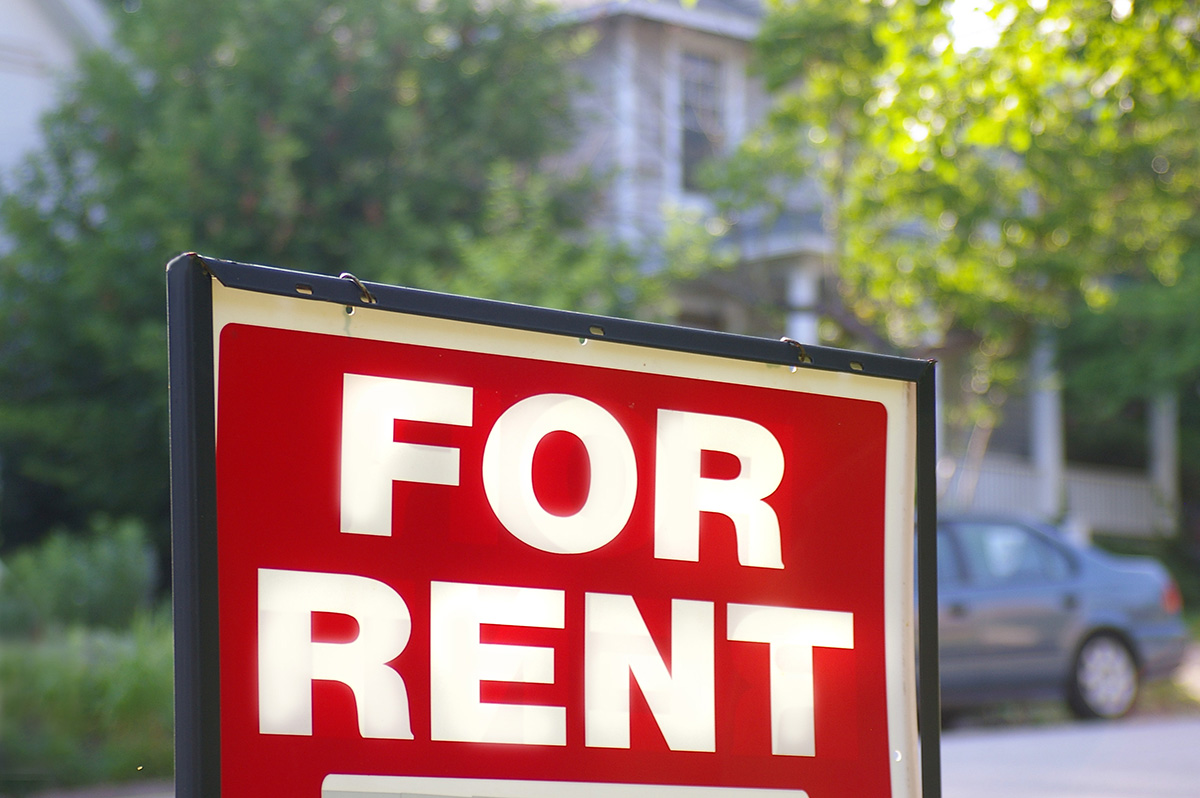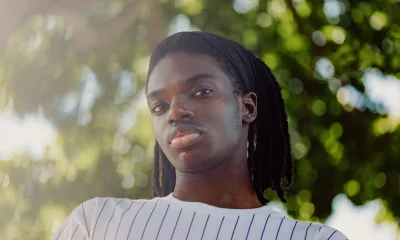Living
Queery: Kellan Baker
20 questions for the LGBT health advocate

Kellan Baker, 28, is one of those how-does-he-find-the-time overachievers whose accomplishments are staggering. He’s been in Washington since 2008 working full-time as a senior policy associate for the National Coalition for LGBT Health while simultaneously working on a master’s in global public health policy and international development at George Washington University.
The Thousand Oaks, Calif., native, who identifies as queer, started aiming high in college where he double majored in astrophysics and Russian literature. He’d read a translation of famous Russian novel “The Master and the Margarita” and felt he wasn’t getting a full appreciation for the nuances, so he learned Russian and eventually spent three-and-a-half years in Moscow working as a translator of scientific papers and later as a reporter.
“I just love Russian language and culture,” he says. “It’s very different. It’s like anytime you’re living somewhere and living and understanding the language and not having this filtered version and not having someone else decide what’s interesting, what’s funny, what’s word play.”
Baker, who’s also fluent in German and French, says he was about 14 when he began to realize he was different. It eventually led him into LGBT activism, a passion that grew more intense during his years abroad. “A lot of issues in the states are completely messed up and completely unfair, but by the same token, seeing what goes on in other countries … it’s exposed me to things that I was able to take for granted in the states.”
There were some practical considerations as well. “At some point I realized nobody wanted to read my devastatingly original thoughts on Dostoyevsky, shockingly, so I got into public health,” he says self-deprecatingly.
Baker lives in Brightwood and is on the board of the D.C. Center. He formerly co-chaired D.C. for Marriage. He’s in a relationship and is happy in Washington where he says he’ll likely stay after graduation, at least for a while though he’d like to eventually live and work abroad again.
How long have you been out and who was the hardest person to tell?
I have always known that I was different from most of the other little kids in elementary school and from what people expected me to be. The process of understanding what it means to me to be queer and how I express that has been a lifelong process that isn’t finished yet, though I’m 28 now. The people with whom I’ve had the hardest conversations are my mom and dad – we’ve gone through a lot together and are now closer than ever.
Who’s your gay hero?
Bayard Rustin, one of the leaders of the civil rights movement who was also a gay man. His activism for civil rights, justice and peace was informed by his sexuality but not defined by it, and for me, that’s the ideal. Sexual orientation, gender identity, skin color, or whatever might be the issue that drives our passion and gets us out of bed in the morning, should never be the be all, end all of who we are either as people or as activists.
What’s Washington’s best nightspot, past or present?
For getting my dance on, I can never beat a good night at Town. I don’t get out often enough, though, so I’m sure there are lots of great places that I’m missing.
What’s your dream gay wedding?
My dream wedding – gay or not – is in a beautiful, natural setting surrounded by family and friends. A hillside winery in Santa Ynez Valley in Southern California comes to mind, or a spring wedding in D.C. (before the weather gets hot).
What non-gay issue are you most passionate about?
I worked for Special Olympics for a long time both in the U.S. and abroad and have always loved the sense of pulling together and camaraderie that Special Olympics teams have. Everyone’s in it to win it, but also just to have a great time.
What historical outcome would you change?
I would learn how to stop worrying and love the bomb. No, really, it’s hard to pick just one. How about the creation of HMOs by Richard Nixon? I just got a doctor’s bill the other day in which insurance had denied the doctor $400, paid $100, and left me with the balance of almost $200. Isn’t that what we supposedly pay insurance premiums to avoid?
What’s been the most memorable pop culture moment of your lifetime?
The release of the complete seasons of “Sex and the City” on DVD.
On what do you insist?
My privacy.
What was your last Facebook post or Tweet?
LET THE COUNTDOWN BEGIN: The official match schedule for 2010 FIFA World Cup in South Africa.
If your life were a book, what would the title be?
“A Survival Guide to Life with High Femmes: How to Balance Your Mother, Your Girlfriend and Your Cat.”
If science discovered a way to change sexual orientation, what would you do?
Start a recruitment drive for Team Queer – since they think they can change us, why not return the favor?
What do you believe in beyond the physical world?
I’m a cradle Episcopalian, though I’m still not sure what implications that has for my “religious” beliefs about any higher powers. I love the liturgy and history of the Episcopal Church, as well as its insistence on reason alongside scripture and tradition.
What’s your advice for LGBT movement leaders?
Think outside the gay box – work with other movements to focus on issues that impact more than just LGBT people and to show that we really are an integral part of the fabric of all kinds of families and communities.
What would you walk across hot coals for?
Cat food that meets my cat’s demanding requirements, particularly when I’ve been out of town and she’s giving me the cold shoulder.
What gay stereotype annoys you most?
That gay is an acceptable convenient shorthand for the entire LGBT community and that all LGBT people are white and well off.
What’s your favorite gay movie?
“Some Like It Hot”
What’s the most overrated social custom?
That having e-mail and a mobile phone means you should be instantly accessible at all times.
What trophy or prize do you most covet?
A MacArthur Fellowship
What do you wish you’d known at 18?
That I’m not as important as I thought I was.
Why Washington?
I came to D.C. for graduate school after spending four years abroad in Russia and Austria and absolutely love it. I especially love the sense of almost small-town community that can happen in a city only 10 miles square, the varied and distinct neighborhoods, and the trails in Rock Creek Park. D.C. to me is the perfect mix of an intimate, livable city and a hotbed of fascinating domestic and international work.
Real Estate
Signs you’ve outgrown self-management of your D.C. rental
Keeping up with local regulations is a struggle

According to rental market statistics from RentCafe, Washington, D.C., remains at the top of the most popular cities for rental properties. With a strong rental market and a growing population, success should be second nature to real estate investors and rental property owners in this area.
As a self-manager of your own rental, if you’re not enjoying the profitability and the earnings that this market can provide, it might be time to look for professional management.
There are certain signs that show property owners have outgrown self-management. We’re exploring those today, and inviting DIY landlords to consider the benefits that come with a partnership with a professional property management company in Washington, D.C.
Washington, D.C., is known for having a complex and ever-changing regulatory environment. There are strict tenant rights, rent control laws, and specific rules related to property maintenance such as mold, lead based paint hazards, among others. The Rental Housing Act of 1985 is strictly enforced, and under this program, there are specific rules regarding rent adjustments, dispute resolution, and eviction protections.
Fair housing laws need complete compliance, security deposits have strict timelines, and habitability standards are in place to ensure tenants are living in a home that’s safe and well-maintained.
Staying on top of these rules can be time-consuming and difficult. Violating even a small regulation unintentionally can result in fines or legal action. It’s critical to stay compliant, and if you find yourself struggling to keep up with the evolving laws and regulations, it’s a clear sign that you may need professional help. Property managers can reduce the risk and liability of making a legal mistake.
Financial Returns are Underwhelming
A lot of self-managing landlords choose to lease, manage, and maintain their own properties because they don’t want to pay a management fee. We get it. Keeping more of your money seems like the best way to increase profitability.
But, here’s the reality of it: property managers can help you earn more and spend less on your investment, increasing your earnings and your ROI. In fact, a good property manager can often earn enough additional net revenue for the owner to pay for that fee over a year.
Property managers are experienced at maximizing the financial performance of rental properties. We can help:
- Optimize rental income
- Reduce vacancy rates
- Lower maintenance costs through established vendor relationships
- Recommend improvements for higher values
Ultimately, a good property manager will ensure that your property is being run efficiently. We will use our expertise to ensure your property is earning what it should.
Maintenance and Repairs Are Taking Up Too Much Time
Maintenance challenges are not unique to self-managing rental property owners. We deal with them, too, as professional property managers. We respond to plumbing issues and appliance malfunctions, we take calls in the middle of the night when a sewer is backing up, and we work hard to protect properties against deterioration and general wear and tear.
This can be overwhelming, especially when it comes to finding vendors and service professionals that are both affordable and provide quality service. Plumbers, electricians, HVAC technicians, and even landscapers and cleaners are in high demand in Washington, D.C. But maintenance at your rental property cannot wait. It’s essential to the value and condition of your investment as well as to the product you are selling.
It’s time to work with a professional property manager if you’re having trouble finding vendors or if you’re struggling to keep up with maintenance requests. We have systems for emergency responses, routine repairs, and preventative services.
Tenant Screening Is Becoming More Difficult and Time-Consuming
Finding good tenants is one of the most critical aspects of rental property management. But in our home of Washington, D.C. we have one of the most regulated rental markets in the country. The tenant screening process has become increasingly complex, highly restricted, and time-intensive.
Many property owners are surprised to learn that there are more limitations than ever on what can be screened, what information can be used in making a decision whom to rent to, and how screening decisions must be documented. Federal and local laws tightly regulate the use of credit histories, criminal background records, income verification, and even eviction records. Staying compliant is not optional. Failure to follow these rules can open the door to discrimination claims, administrative complaints, substantial fines, or even lawsuits.
That’s why rushing or relying on outdated methods can easily result in selecting the wrong resident or worse, unintentionally violating DC’s Human Rights Act or federal Fair Housing laws.
Problematic tenants often become evident only after move-in: lease breaks, chronic late payments, noise complaints, and property damage. When these patterns appear repeatedly, it is often a sign that the screening process is not sufficiently structured.
Why Professional Screening Matters
Professional property managers have systems in place to perform thorough, legally compliant screening while avoiding oversteps that could violate the regulations. Professional property managers use trusted screening platforms and follow written processes that keep owners protected and ensure fairness for applicants.
Columbia Property Management’s screening process includes:
- Credit Report Review
Evaluating credit patterns, payment reliability, and debt load while complying with restrictions on how data can be used. - Rental History Verification
Contacting prior landlords and reviewing national eviction databases—keeping in mind that some jurisdictions like the District of Columbia limit how far back eviction data can be seen, must less considered. - Background ChecksReviewing public records in a manner consistent with DC’s Human Rights Act and federal guidance on criminal history usage. Not all criminal records can be considered in rental decisions, and timing rules often apply.
- Income & Employment Verification
Confirming applicants can afford the rent and other monthly expenses based on their income, without ruling out certain income in a discriminatory way (e.g., vouchers, subsidies, or lawful alternative forms of income). There are many intentional steps conducted by professional property managers under a framework that ensures decisions are based on objective criteria, applied consistently, and fully aligned with the latest federal and DC regulations.
Your Property Is Sitting Vacant for Longer Periods
While current rental market dynamics are starting to show the effects of federal workforce layoffs and the worsening local economy, the vacancy rate in Washington, D.C., is relatively low, compared to the national average. According to a news report from WTOP, the local vacancy rate is just 6%, and there are an average of seven applications for every available rental unit.
A vacant rental property can quickly become a financial drain. Whether you own a condo near Dupont Circle or a single-family home in one of Capitol Hill’s neighborhoods, every day your property sits empty means lost income. While the D.C. market is generally competitive, the reality is that there are always fluctuations in demand based on seasons, neighborhood desirability, and even economic trends.
If you’re struggling to fill your rental quickly, it might be a sign that you need to re-evaluate your approach. An experienced property management company has a marketing strategy in place to keep vacancy periods as short as possible. From professional photos and listings to leveraging established networks, they can help ensure that your property is rented quickly, reducing the amount of time it sits vacant.
While managing a rental property in Washington, D.C., can be rewarding, it’s also challenging. As your property portfolio grows or the demands of your life or the demands of being a landlord increase, it’s helpful to recognize when it’s time to step back and let a professional handle the day-to-day tasks.
From navigating complex local regulations to ensuring your property remains occupied and well-maintained, there are many reasons why rental property owners in Washington, D.C., outgrow self-management. If any of these signs resonate with you, consider partnering with a property management company like ours to ensure that your rental investment continues to thrive without the stress and burnout of self-management.
We’d love to be your Washington, D.C., property management partner and resource. Please contact us at 888-857-6594 or ColumbiaPM.com
Scott Bloom is owner and Senior Property Manager, Columbia Property Management.
Advice
My federal worker husband is depressed and I don’t know how to help
I feel like he’s dragging me into his hopelessness

Dear Michael,
My husband is a federal worker. Many of his colleagues took “the fork” or have been fired. So work has been overwhelming. He usually works late. The morale in his office is terrible. His paycheck disappeared with the shutdown although due to the specifics of his job, he still had to go in. He’s gotten increasingly depressed, irritable, and short-tempered.
I met Jason 20 years ago when we were young, and one of the things that made me fall in love with him was his idealism. He came to Washington because he wanted to contribute to the well-being of our country.
When I look at him now, it’s like he’s been through the wringer. He’s lost his idealism, feels unappreciated by our country, and is becoming bitter.
He never wants to go out with friends. Either he doesn’t want to hear them complain about the same sorts of things he’s experiencing, or he doesn’t want to have to interact with people who are doing just fine, job-wise.
He also doesn’t feel like going out, just the two of us. So we’re home a lot. But we’re not spending time together when we’re at home. He’s surfing the internet, doom-scrolling, or playing video games.
I can’t get him to talk to me; he says, “I don’t want to talk about anything, it just makes me feel worse.” I can’t get him to do anything that might help him feel better. He doesn’t want to cook dinner with me, he doesn’t want to eat any of his favorite foods that I make for him, he won’t go for a walk with our dog (exercise is supposed to help mood, right?).
I’m really worried about him. Clearly, he’s depressed, and nothing I am trying is helping him to feel better.
But in addition, I am starting to get annoyed. How much more can I try to do things for him that he doesn’t respond to and doesn’t appreciate?
I’ve been OK through this long slog, so far, but now I feel like I am being sucked into his depression and hopelessness. I’m starting to feel like giving up. I’m lonely and I miss my husband and I am despairing that he’s ever really going to come back.
In short, now I hate my life, too.
I’m not going anywhere but I am worried that my main feeling toward him is starting to be apathy. Is there something I can do to help him that I haven’t thought of?
Michael replies:
I’m sorry, this is such a rough time.
It’s understandable that when someone you love is suffering and feeling miserable, you might at times get fed up and feel like pulling away.
There’s a great saying by an ancient Jewish sage, Rabbi Tarfon: While you can’t fix the whole world, that doesn’t mean you should give up and do nothing to help.
I thought of that saying as I read your letter, because while you can’t get Jason to change his mood or take action on his own behalf, you may have some ability to help him.
Similarly, while you can’t have a fantastic time in life when your husband is in a miserable place, you can take care of yourself and likely have a better life than you are having at present.
For starters, I encourage you to keep reminding yourself that this is without doubt one of the hardest periods of your husband’s life. So it’s a very good idea to have an open heart and a lot of compassion for Jason, as much of the time as you can. This won’t be easy. Strive to keep in mind that getting angry at Jason or frustrated with him won’t help.
Don’t try to insist that Jason do anything. Often, when we push someone to do something that they don’t want to do, this just results in their digging in more. People generally don’t like to be nagged.
Of course you can ask Jason if he’d like to join you for a walk, or an outing, but tread carefully. You can advocate for what you’d like, but Jason gets to decide what he wants to do.
You can certainly ask Jason what he would like from you, especially when he’s complaining. I love the “3 H’s” concept: Would he like you to hear (simply listen)? Would he like help (advice on what to do)? Or would he just like a hug?
The best message you can send to Jason, by your presence and by an ongoing loving stance, is “I am here. You’re not alone.” Even when he wants to stay in the basement playing video games. You’re not criticizing him and you’re not judging him. Maybe you’re baking some cookies you both like and leaving him a plateful to eat if and when he wants to. (Be sure to treat yourself to some, as well.)
In terms of bigger interventions, you can suggest that Jason meet with a therapist, or meet with his physician to discuss the possibility of an antidepressant to help him through this awful period. For example, you might have a sincere conversation where you say something like this:
“I’m worried about you. I really want to encourage you to get some help. My love for you can only go so far, and while I’m not going anywhere, I’d like you to take seriously how miserable you are. I’m here to encourage you that maybe you could feel better, even though your circumstances are terrible and you feel disillusioned.”
Again, trying to convince or force Jason to take action will likely go nowhere useful.
Now let’s focus on you. Living with a depressed spouse can be a miserable, soul-crushing experience. As you described, you’re watching the person you love suffer, and you’re pretty much losing your partner in so many of the things that make life enjoyable.
Part of getting through this is to acknowledge that there is a limit to what you can do for Jason. And part of it is to strengthen your commitment to self-care. Taking care of yourself may keep you from going too far into misery or resentment. He doesn’t want to get together with a friend? Consider going anyway, and do your best to have at least a good time. Same thing with a dog walk, a good meal, or sitting down to watch a movie you’d like to see. You might also consider meeting with a therapist for ongoing support and strategizing.
While this period of your life is gruelingly difficult, try to remember that it likely will come to an end, that there will likely be good times ahead for you and for Jason, and that in the meantime, doing your best to find ways to take care of yourself while also being a supportive and loving spouse will help you to survive.
Michael Radkowsky, Psy.D. is a licensed psychologist who works with couples and individuals in D.C. He can be found online at michaelradkowsky.com. All identifying information has been changed for reasons of confidentiality. Have a question? Send it to [email protected].
Real Estate
Tips for LGBTQ buyers, sellers during holidays
A powerful and overlooked window for real estate transactions

The holiday season is a magical time, filled with celebration, travel, connection, and reflection. It also happens to be a powerful — and often overlooked — window for both buying and selling real estate. For members of the LGBTQ+ community, shopping for a new home or preparing to list a property during the holidays comes with opportunities, challenges, and important considerations that deserve thoughtful attention.
Whether you’re preparing to make a move as a same-sex couple, searching for safe and affirming neighborhoods, or hoping to secure the best possible price for your home sale before the new year, the holidays can offer unique advantages. With an inclusive approach, LGBTQ+ friendly resources, and the right professional guidance, this season can be a strategic and rewarding time to take your next real estate step.
Below are actionable tips, insights, and resources specifically tailored to LGBTQ+ home buyers and sellers navigating the holiday season.
Why the Holidays Can Be the Right Time
Lower Competition & Motivated Sellers
Because so many people put their real estate plans on pause during November and December, LGBTQ+ home buyers may see lower competition, fewer bidding wars, and sellers who are eager to close before January. This can bring real advantages for first-time gay home buyers or same-sex couples seeking more favorable negotiating terms.
Buyers Are More Serious
If you’re selling your home as an LGBTQ+ individual, remember: holiday buyers tend to be more intentional, financially prepared, and timeline-driven. This can make the sale process smoother.
Holiday Appeal Helps Homes Show Better
Warm lighting, seasonal décor, and neighborhood festivities can enhance curb appeal and emotional impact — which can be especially valuable when selling your home.
Tip #1: Choose LGBTQ-Friendly Representation
Above all else: work with a professional who understands the LGBTQ+ community and the unique concerns LGBTQ+ clients have.
This means choosing:
- a gay realtor
- a lesbian realtor
- an LGBTQ+ friendly real estate agent
Agents who are part of, or deeply familiar with, the LGBTQ+ community can make a tremendous difference in safety, comfort, and confidence throughout the transaction.
For more than 30 years, GayRealEstate.com has been the trusted leader in LGBTQ+ real estate, providing LGBTQ+ home buyers and sellers access to:
- verified LGBTQ+ real estate agents
- same-sex couple home buying experts
- LGBTQ+ friendly realtors near you
- agents experienced in discrimination-related protections
- LGBTQ+ relocation specialists
Whether you’re buying or selling, this starts you on the right path.
Tip #2: Focus on LGBTQ-Friendly Neighborhoods
If you’re buying a home during the holidays, make researching neighborhoods a top priority.
Look for areas known for:
- Inclusion & diversity
- Active local LGBTQ+ groups
- Gay-friendly businesses
- Visible LGBTQ+ community presence
- Supportive schools & services
- Pride events & alliances
Searching online helps — but talking with an LGBTQ+ friendly realtor who knows these neighborhoods firsthand is invaluable.
Also search:
- LGBTQ+ crime statistics
- local anti-discrimination policies
- protections against housing discrimination
- hate crime data
- political climate
- HOA regulations
Your home should feel safe year-round, not just festive in December.
Tip #3: Know Your Legal Protections
Housing discrimination still exists — and LGBTQ+ home buyers and sellers must remain vigilant.
While federal protections exist through the Fair Housing Act (as interpreted to include sexual orientation and gender identity), not all states provide equal protection.
Know your rights around:
- Mortgage discrimination
- Rental screening discrimination
- Sellers refusing offers from LGBTQ+ buyers
- HOA discrimination
- Harassment after move-in
Your agent should be able to assist — but GayRealEstate.com also offers educational guidance and resources for navigating LGBTQ+ legal protections in real estate
Tip #4: Navigate the Emotional Side
For LGBTQ+ buyers and sellers, the holidays can stir up complex feelings:
- family dynamics
- financial pressure
- expectations around marriage or partnership
- relocation stress
- memories tied to a home
Be patient with yourself.
Buying or selling a home is life-changing — honor the emotional journey as much as the financial one.
Tip #5: Take Advantage of Holiday Cost Savings
Buying?
- Lower interest rates may appear around December
- Contractors often discount home inspections & repairs this time of year
- Movers run holiday promotions
Selling?
- Minor seasonal upgrades help tremendously:
- warm lighting
- new evergreen planters
- festive front door accents
- Be careful not to over-decorate — buyers need to see the space clearly
And yes — holiday cookies help.
Tip #6: If You’re Relocating — Plan Ahead
Many LGBTQ+ buyers relocate during the holidays to:
- be closer to family
- move in with a partner
- begin a new job in the new year
If you’re relocating as an LGBTQ+ couple or family:
- research local LGBTQ+ resources
- connect with local LGBTQ+ organizations
- ask your gay real estate agent about local LGBTQ+ clubs, groups, and services
- evaluate long-term safety for LGBTQ+ families
Plan early — December moves get booked fast.
Tip #7: Use Trusted LGBTQ Real Estate Resources
The most important resource of all:
GayRealEstate.com — the #1 dedicated LGBTQ+ real estate resource for over 30 years.
On GayRealEstate.com, you can find:
- LGBTQ+ friendly real estate agents nationwide
- Verified gay and lesbian Realtors
- LGBTQ+ real estate market information
- Same-sex couple home buying guidance
- LGBTQ+ real estate services
- Gay and lesbian friendly neighborhoods
- Relocation tools
- LGBTQ+ home buyer & seller education
No other site offers this level of specialization, expertise, or community connection.
The holidays are more than just a season of celebration — they’re also a meaningful opportunity for LGBTQ+ home ownership, real estate transitions, and new beginnings. Whether you’re a first-time gay home buyer, a same-sex couple selling a home, or an LGBTQ+ family preparing to relocate, you deserve an experience grounded in respect, inclusion, and safety.
With the right preparation — and the right LGBTQ+ friendly real estate agent — your journey can be rewarding, affirming, and filled with new possibilities for the year ahead.
To find an LGBTQ+ real estate agent who understands your needs, visit GayRealEstate.com, the trusted leader in LGBTQ+ real estate services, resources, and representation for over three decades.
Scott Helms is president and owner of Gayrealestate.com.














